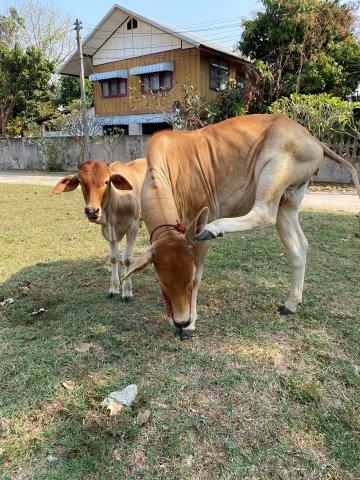UN ‘ActNow’ campaign is terribly misguided activism against meat
What are you thinking? Where is your science? Is your goal irrelevance?
August 9, 2020

International intergovernmental organizations have a critical role to play in advancing scientifically sound policies and practices. Historically, the United Nations (U.N.) and its member organizations have been key players in advancing health and nutrition globally for the benefit of the most vulnerable, especially for children.
However, in the past days the U.N. totally blew all credibility with its ‘ActNow’ Twitter post regarding meat that says, “The meat industry is responsible for more greenhouse gas emissions than the world’s biggest oil companies. Meat production contributes to the depletion of water resources & drives deforestation.” On its ‘ActNow’ website it added, “You have the power to tackle climate change. Small changes can make a big difference if we all work together. The U.N. has identified 10 key actions that you can take in you daily life and record here.” Then it asks, “Which action do you want to commit to first?” And one choice is ‘meat-free meals.’
Fortunately, an informed scientist Anne Mottet, a livestock development officer with the Food & Agriculture Organization (FAO), tweeted, “Greenhouse gas emissions from transport are higher than those from all livestock in the world.
Additionally, several other experts and stakeholders weighed in, and now the U.N. appears to have deleted the English version of the tweet. But unfortunately, they still have the ‘meat-free meals’ as an ‘ActNow’ key action option.
The U.N. blatant non-scientific based bias against food animal production and toward vegetarianism appears to continue to permeate throughout its whole intergovernmental organization structure. It appears there is more interest in transforming the global food system into an idealistic version of a sustainable, climate-conscious, system than truly advancing global human health and nutrition. Globally, it is scientifically recognized that meat provides essential macronutrients and micronutrients that help sustain life and that food animal production helps sustain livelihoods.
In the recent “2020 The State of Food Security and Nutrition in the World – Transforming Food Systems for Affordable Healthy Diets” report noted, “… almost 690 million people in the world (8.9% of the world population) are estimated to have been undernourished in 2019.” The report findings noted the sustainable development goal of zero hunger by 2030 is destined for failure and that the trends for food security and nutrition have now trended the wrong direction since 2014.
An April 2019 scientific paper titled “The Health effects of dietary risks in 195 countries, 1990–2017: a systematic analysis for the Global Burden of Disease Study 2017” provided great insight into what are the true dietary risks. The scientific analysis determined that the highest dietary risks are from the high intake of sodium, the low intake of whole grains and the low intake of fruits. These three accounted for more than 50% of deaths and 66% of DALYs (disability-adjusted life-years). Further it determined that data does indicate that diets high in processed meats, low in milk and high in red meats do have their risks, but relative to other dietary risks they are extremely low as it relates to deaths and disability-adjusted life-years.
To the U.N., based on evidence, it appears that your recent years of activism are undermining food security and nutrition goals. It appears that you are incorrectly understanding the health effects of dietary risks.
A sustainable planet is essential for all of humanity. Sustainably produced food for a nutritious diet is important for all. Yet, as one considers climate impact, currently, activism is getting way ahead of the scientific understanding of true carbon footprints. Better data is needed around direct and indirect contributions. More analysis needs to be done around global life cycle emissions. Specific to food, there is a need for carbon footprint analysis relative to the nutritional values of various food that comprise a healthy diet. This includes understanding the carbon impact relative to a person’s needs for various macronutrients (proteins, fats and carbohydrates including dietary fibres) and essential micronutrients (vitamins and minerals). Existing over-simplification of comparisons and conclusions are resulting in poorly derived policy and misguided actions. A wholistic approach is important that considers nutrition and health, economics and livelihoods, and the environment.
The U.N. notes, “ActNow is the U.N.’ global call to individual action on climate change. The campaign is a critical part of the U.N.’s coordinated effort to raise awareness, ambition and action for climate change and accelerate implementation of the Paris Agreement.” It adds about ‘ActNow’, “Primarily an online and social media campaign, ActNow will educate and encourage individual actions, mainly by adjusting consumption patterns. By changing our habits and routines and making choices that have less harmful effects on the environment, we have the power to confront the climate challenge.”
Yes, action is needed. Yes, every climate action counts. But acting irresponsibly will not protect our planet or improve human health! To the U.N., if you want to be relevant, please think and let science be the basis for guiding your policy. Balanced diets, that include animal proteins and meat, will have the greatest beneficial impact on human health globally. Activism for action for a nutritionally balanced healthy diet - that includes plant sourced and food animal sourced foods - is good!
About the Author(s)
You May Also Like





